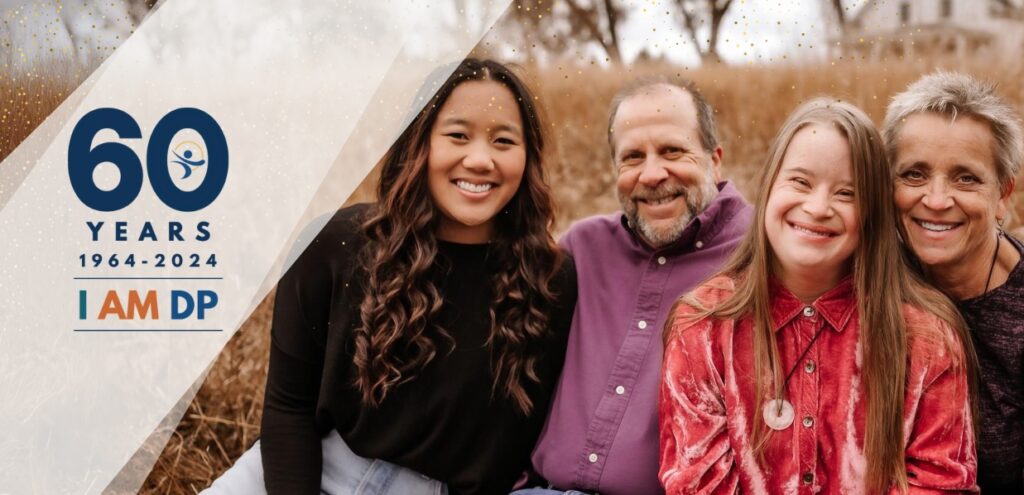
I AM DP:
Celebrating 60 years of Dedication to People with Disabilities
Developmental Pathways has been an essential community-based support for individuals with disabilities since 1964.
We believe full inclusion and participation in community life is attainable for everyone, and our mission remains focused on honoring and elevating this founding vision.
Today, DP proudly serves over 15,000 individuals of all ages and their families.
Thank you to the past and present board members, teams, community partners, individuals, and families who have been a part of our journey over the past six decades. Our commitment to serving our community and ensuring individuals with disabilities receive the care they need remains stronger than ever. We are so excited for the future and look forward to remaining a community resource for years to come!
We've teamed up with local businesses across Douglas, Arapahoe, and Elbert counties. Throughout 2024, enjoy exclusive day, week, and month-long discounts or coupons from our partnering organizations.
- There were no results found.
- There were no results found.
DP History Timeline
Click on the arrows on the left and right sides of the timeline to navigate.
This act is established to enhance general public welfare in the U.S. by setting up a framework for federal benefits and assisting states in better supporting elderly, unemployed, and disadvantaged Americans.
This legislation provides federal funding for community mental health centers and research facilities in the United States, leading to considerable deinstitutionalization for people with I/DD.
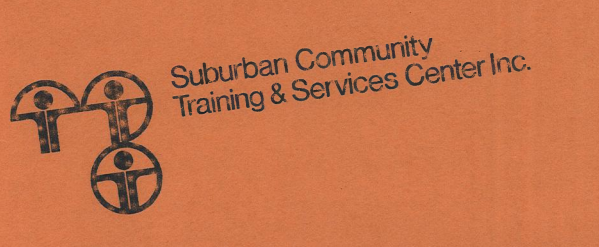
Developmental Pathways, first known as the Suburban Community Training and Services Center, Inc., is founded in Littleton, Colorado. Our goal is to provide support to individuals with intellectual and developmental disabilities and their families within their own communities instead of institutional settings through offering educational, vocational, and residential programs.
These amendments to the social security act help ensure medical coverage for more Americans, by introducing Medicare, a health insurance program for the elderly, and Medicaid, a health insurance program for individuals with low income. At this point, Medicaid requires coverage of Long-Term Care (LTC) in institutions but not in the home.

Our first educational programs open in Arapahoe County and Aurora. They are designed to provide a continuum of training for individuals with I/DD, ages birth - 21, within public schools.
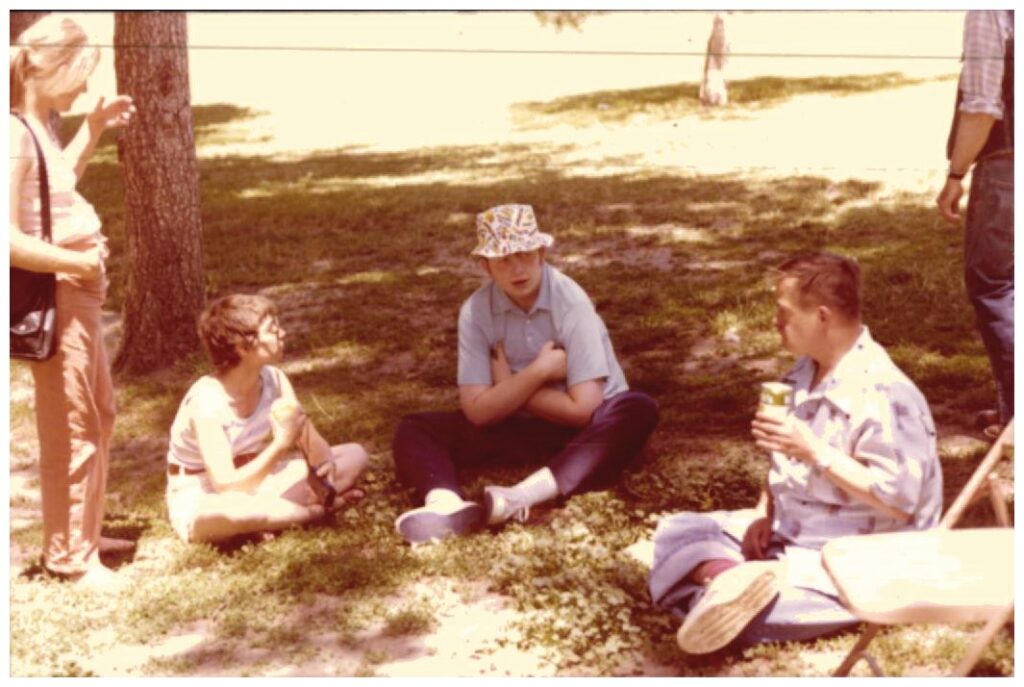
Our first vocational program is founded in Englewood and Aurora. It provides jobs and training to individuals with I/DD by giving each participant a real work environment, commensurate wages, and comprehensive vocational services.
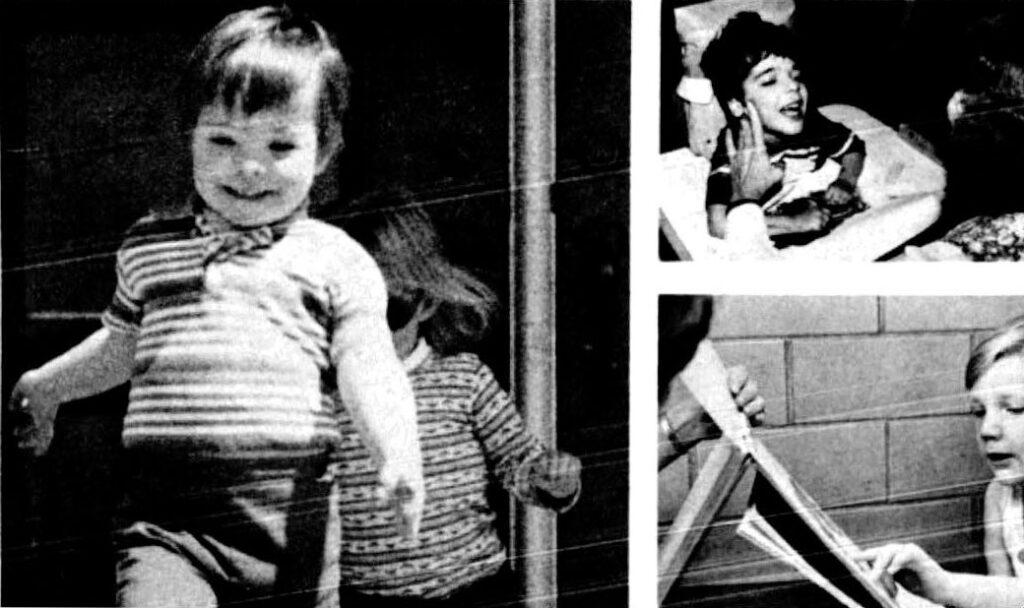
Our Early Intervention program for infants aged 0-3 years old with developmental delays begins. It is founded when it became evident that early developmental interventions for babies had a significant impact on their later growth.

By this time, we serve 375 individuals and about 250 families, and have residential programs in Littleton, Englewood, and Aurora. These programs teach life skills and foster independence for individuals with I/DD. We also offer a recreation program that includes outdoor activities such as camping, hiking, and skiing.
Section 1915(c), an amendment to The Social Security Act of 1981, introduces Medicaid home and community-based (HCBS) waivers. These waivers enable Long-Term Services and Supports (LTSS) to be delivered at home or intermediate levels of care rather than solely in nursing home facilities.
Colorado is one of the first states to implement an LTSS waiver with the Home and Community-Based Services Waiver for Persons with Developmental Disabilities. It provides access to 24-hour, seven days a week supervision through Residential Habilitation and Day Habilitation Services and Supports.

Suburban Community Training and Services Center, Inc. changes its name to Developmental Pathways.
This act implements quality controls and penalties for nursing homes, introduces training requirements for nurses’ aides, and establishes training standards for home health agency employees. This legislation was crucial for individuals receiving health care patients and ensured their rights were similar to those in nursing homes.

Our Family Support Program begins. It provides financial assistance and care coordination to families caring for a member with I/DD and is designed to meet these needs in partnership with them, rather than more expensive options.
A pivotal law that prohibits discrimination against individuals with disabilities in many areas of public life, including jobs, schools, transportation, and many public and private places, in order to ensure people with disabilities have the same rights and opportunities as everyone else.
The Children's Home and Community-Based Services Waiver (CHCBS) is established for children with significant medical needs and who are at risk for institutional care in an acute hospital or skilled nursing facility. Child Health Plan Plus (CHP+) is created as a public low-cost health insurance for certain children and pregnant women who earn too much to qualify for Health First Colorado (Colorado's Medicaid program), but not enough to pay for private health insurance.

We now provide services for over 600 individuals through vocational and residential programs, and case management. We are the third largest entity of our kind in Colorado at the time and consistently provide leadership in developing innovative services.
Total Long-term Care is established in Colorado, as one of the pioneering nationwide Programs of All-Inclusive Care for the Elderly (PACE) funded by Medicare and Medicaid. PACE provides comprehensive health care services to their participants to enable older adults to live in the community as long as medically and socially feasible.
The Brain Injury (BI) waiver is implemented to help people with a brain injury who need extra support to live in their communities.

Referendum 4(a) is proposed to provide Mill Levy funding from both Arapahoe and Douglas Counties. This means a portion of property taxes would be taken from each county and given to DP to fund supports for individuals with I/DD. It passes with 60% voter approval in Douglas County, and 63% voter approval in Arapahoe County.
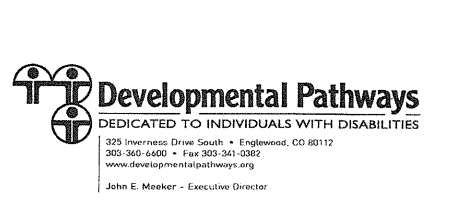
At this time, we serve 1,784 individuals and have close to 500 employees. We now maintain 25 active sites, including five apartments, 18 owned group homes, two day program sites, and two administrative buildings.

We create our Community Outreach Program (currently called Community Outreach Waitlist Services Program). It supports individuals on the waitlist to access other programming and adds additional support for children exiting the Early Intervention program by filling any gaps in services.
The state of Colorado helps to take 700 children off the Children's Extensive Support Waiver waiting list, allowing them to receive services. This effectively eliminates the years-long wait for families seeking help for their children with high needs.

Developmental Pathways absorbs our administrative branch, Nonprofit Management Services of Colorado, and separates from Continuum of Colorado. This is done to comply with regulations requiring case management agencies to be conflict-free under the Centers for Medicare and Medicaid Services and the HCBS Final Settings Rule.
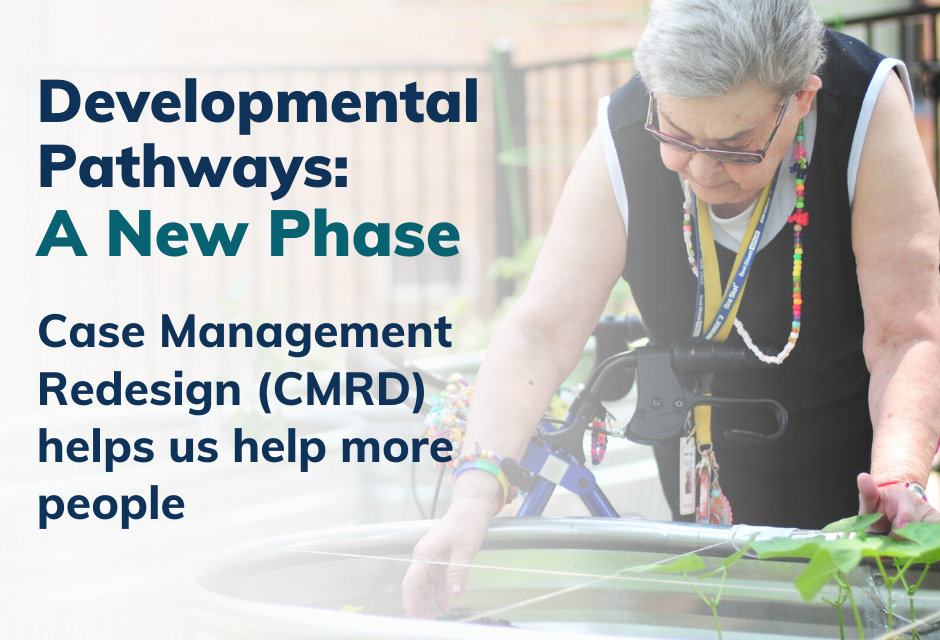
We successfully launch a major transition to become a Case Management Agency. It enables us to provide case management services for Arapahoe, Douglas, and Elbert counties.

We celebrate our anniversary of 60 years of dedication to individuals with disabilities! To commemorate this milestone, we are launching a year-long celebration with the theme "I Am DP,” recognizing everyone who has been a part of our journey.
How We Celebrate
Thanks to everyone who has joined us for our multiple events throughout the year!
1/24/24
Case Management Redesign (CMRD) Open House
3/12/24
I/DD Awareness Day at Arapahoe County
3/20/2024
I/DD Awareness Day at the Capitol
3/23/24
Developmental Disabilities Awareness Month Sensory Event
3/26/24
I/DD Proclamation at Douglas County
3/28/24
The Hive Grand Opening
4/16/24
Employee Appreciation Event
4/18/24
Tennyson Center Event
5/28/24
Kristin Hoover Awarded the 2024 DP BOD Lifetime Achievement Award
6/6/24
All Staff 60th Anniversary Celebration
6/7/24 – 6/9/24
Denver Greek Festival
7/30/24
DP Backpack Drive with A precious Child and Mind Solutions, LLC
8/8/24
DP Fall Open House
8/8/24 – 8/14/24
Direct Support Professionals Recognition Week
8/22/24
Matt Awarded the I/DD Champion Award at the Alliance Colorado Summit
8/26/24
Disability Awareness Day at the 2024 Arapahoe County Fair
8/28/24
Douglas County Fair and Rodeo for Disability Awareness Day
10/16/24
All Staff BLUE OUT Celebrating Case Manager & Coordinator Appreciation Week 2024
11/24
Thanksgiving Drive
12/24
Pathways Holiday Outreach